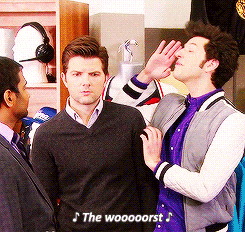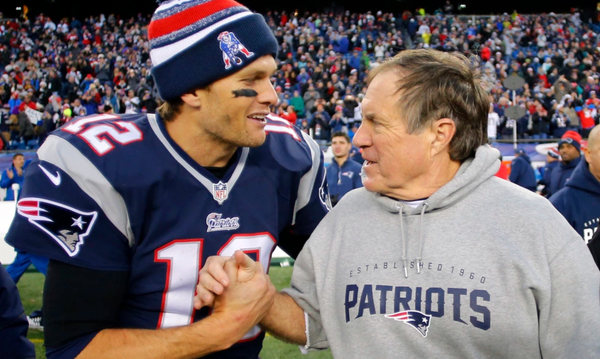As an athlete, one of the most important things you can acquire is mental toughness. I have been told time and time again that it doesn’t matter how quick your feet are or how technically sound you might be; if you’re not resiliently poised when the going gets tough, these talents are basically void.
Growing up, I was never one of those players who had exceptionally impressive footwork or noticeable speed, so I made a point of developing this fortitude in an effort to differentiate myself from some of the other girls that had the skills but also the temper. To this day, I pride myself in being a player that can simultaneously frustrate my opponent while remaining level-headed in a high-pressure situation. It honestly takes a lot to get under my skin, but the derogatory “girl” comments get me every time. If you’ve ever played pickup with a group of guys, you know what I’m talking about. For those of you who have no idea what I’m referring to, here’s a sample of the encounters I continually withstand, in progression, every time I play as “just one of the boys”:
With my bag in hand, I arrive on the field and receive blank stares (if I’m lucky). Usually, they just ignore me. Rarely does my presence as a woman deserve a direct acknowledgement. When teams are picked, I’m almost always one of the last people standing on the line with the awkward, lanky guy who bought his first pair of cleats last week. It doesn’t matter if I very obviously have the toned figure of a collegiate athlete who’s been playing for the last sixteen years of her life. Boy player is assumed to be better than girl player. As we begin to play, and I get knocked around a bit–as defenders do– "be careful, she's a girl" is thrown out as a reminder (like my brain and butt aren’t). This comment is immediately followed up by…. "Ewhhhhh..." wide eyes, and a slack jaw when I instinctively tackle the 6'4" guy so hard that he stumbles back the proceeding play. For whatever reason, a few always chuckle at their buddy for being stuffed by the only woman on the field. Bonus: When I’m really fortuitous, I’ll even get a “dayummm” or a “tsss-tsss” after an impressive shot or tackle. Never mind that I came out to simply play. My attendance evidently welcomes ridiculous catcalls and demeaning remarks.
I’m sure some of these—maybe even all of these—sound familiar. If they don’t, consider yourself blessed, because they’re
I’ll be honest and admit that I prefer playing with and against guys, but I dread having to endure these ignorant comments that are established in a deep-rooted stigma. To put it bluntly, female athletes are assumed to be substandard to their male counterparts and are thus not treated with the same level of respect. Now before you roll your eyes and mutter, “Friggin’ feminists," take a moment to watch the following video. The Always #LikeAGirl campaign produced this ad in an effort to show viewers that, at some point, “like a girl” became synonymous with weakness. They challenged those that participated with follow-up questions, revealing an unknowingly, powerful truth about the impact of these three little words. Check it out (and maybe grab some tissues):
I hope that made some of you tear up, but if not, I hope that at the very least this struck a nerve. For me, every time I watch this, I’m just reminded of the inferiority I felt growing up as a female athlete. It’s taken me years to wrestle with my own insecurities -- on and off the field -- so it certainly doesn’t help when I am continually badgered by grown men for simply playing the beautiful game to this day.
Oftentimes, I ask myself, “Why?” Is it too bold to think that there’s a girl that might have just as much skill, just as much talent, just as much knowledge, just as much heart, just as much passion? Is that threatening to them? What is it? Because I cannot think of any other logical explanation as to why these five things reoccur every time I play on a noticeably male dominated field.
Ranting aside, I do not expect an apology. Nor do I need one. For better or worse, I’ve actually gotten used to these subtle hues of harassment. But, please, I implore you, men and women alike, consider how you view female athletes because there are ones younger than me that should not have to grow up with this stigma where they view themselves as inferior simply because of their sex. They follow by example, so be intentional of how you’re coming across. Empower your girls at a young age by teaching them what it means to truly play like a girl so that they can confidently correct anyone that tries to tell them otherwise.
Xoxo,
Gospel (#LikeAGirl)






















